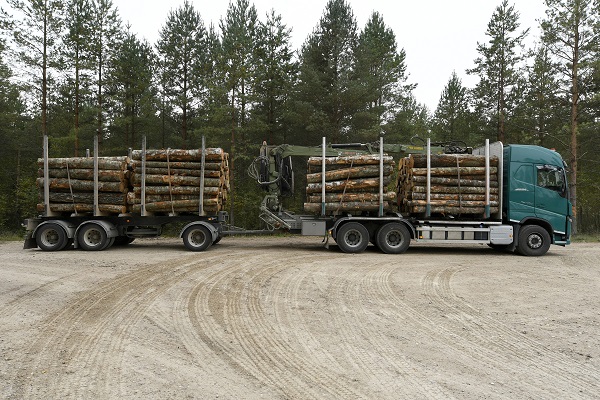Technologies Help Planning Forester Routes
Investments in the development and improvement of company’s processes have resulted in significant achievements in JSC "Latvia's State Forests" (LVM) timber supplies.
38 companies, involving 140 forestry forwarders with 350 forwarder drivers provide LVM timber transportation services on a regular basis. Although initially the transportation process seems simple, not all vehicles are equipped with state-of-the-art technologies: computers with internet access, on-line tracking and routing systems, etc., which allow efficient planning of timber supplies.
"LVM maintains up-to-date information on roads where forwarder movement is possible and permitted. This allows you not to plan deliveries using closed roads or roads with reduced carrying capacity during spring slush, it allows avoiding traffic flows that go to mass events or to respond to requests made by inhabitants, thereby reducing the inconvenience caused by intensive transportation of timber. Today's technologies allow these changes to be implemented so that LVM clients - Latvian wood processing companies would not suffer from this," says Andris Meirāns, Chief Executive Officer LVM Sales and Supplies.
Routes are planned taking into account both the company's as well as the public interest. For example, if we receive information that heavy forwarder traffic causes inconvenience, changes in the flow of trucks in a given road segment can be made, by reducing the intensity of forwarder traffic, night movement or driving speeds near houses and inhabited areas. A similar solution was found during this year's Song and Dance Festival, when the company, using the Riga bypass, significantly reduced the flow of forwarders in the capital.
Since its foundation in 1999, LVM by implementing sustainable forest management has paid one billion euros to state and local government budgets. LVM's economic activities are carried out by maintaining and recovering forests, taking care of nature conservation, recreation opportunities and increasing timber volumes, as well as investing in expanding the forest land and developing forest infrastructure - renovation of drainage systems and forest road construction. The volume of timber in the forests managed by LVM increases by 12 million cubic metres annually.



